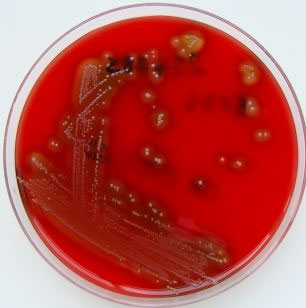The fast-growing cannibalism bacteria
Scientists have found that a meat-eating bacterium can cause fatal infections that evolve rapidly, within 35 years.
 According to US researchers, the bacterium called Streptococcus A group has undergone 4 major genetic changes in the process of transformation into a form that causes necrotizing fasciitis (necrotizing fasciitis) , a dangerous disease. Deadly is also known as "meat rotting".
According to US researchers, the bacterium called Streptococcus A group has undergone 4 major genetic changes in the process of transformation into a form that causes necrotizing fasciitis (necrotizing fasciitis) , a dangerous disease. Deadly is also known as "meat rotting".
The Streptococcus group A bacteria seem to attack humans since the 1980s. In the past, scientists could not determine why they developed so quickly.
Despite decades of research, the plague caused by A Streptococcus bacteria remains a major threat to human health. This fact is partly because, researchers cannot find the nature and timetable of key molecular events, turning some microbes into toxic pathogens.
However, recently, American scientists have for the first time lifted the mystery of the mysterious processes that lead to the rise of human cannibalism.
Specialist James Musser from the Institute of Clinical Society Research Institute (Texas, USA) and colleagues focused on a particularly dangerous form of meat rot infection. They attached studies of animal microbial toxicity to the gene analysis of 3,615 strains of Streptococcus with serotype M1 and trace the pathogen origin to a single head cell.
The first cell, the first cell to produce a toxin factor, evolved through a series of stages until the early 1980s, when it had genes responsible for producing two potentially toxic toxins. destruction of meat rot. According to the team, the acquisition of these genes is the last major event in the emergence of pathogens and the transformation into global disease.
Experts conclude: "Epidemic diseases caused by bacterial infections are a major threat to the health of humans and animals. We have clarified the vague decades of timetable. as well as the sequence of genetic changes that underlie global epidemics.
The analysis of this dangerous carnivorous bacterium is essential to the development of better strategies for predicting as well as controlling the emergence, emergence of strains, and effective treatments. to protect public health and vaccine preparation ".
- Harmless bacteria in the intestine turn into human cannibalism, killing 5 Chinese patients
- What you need to know about cannibal bacteria in raw oysters
- Famous novelist predicts cannibalism
- 'Cannibal' bacteria attack more than 500 people in Japan
- Why do people eat people?
- Find out how to identify resistant bacteria in minutes
- Explaining the cause of human cannibalism
- Discover shock about bacterial growth in space
- Unearthing evidence of cannibalism in Germany
- Plague Buruli mysteriously spread in Australia
- Why is cannibalism unacceptable in humans?
- Ancient bacteria causing leprosy are mutating
 Why do potatoes have eyes?
Why do potatoes have eyes? 'Tragedy' the world's largest carnivorous life: Death becomes ... public toilet
'Tragedy' the world's largest carnivorous life: Death becomes ... public toilet Tomatoes were once considered 'poisonous' for 200 years
Tomatoes were once considered 'poisonous' for 200 years Detecting microscopic parasites on human face
Detecting microscopic parasites on human face